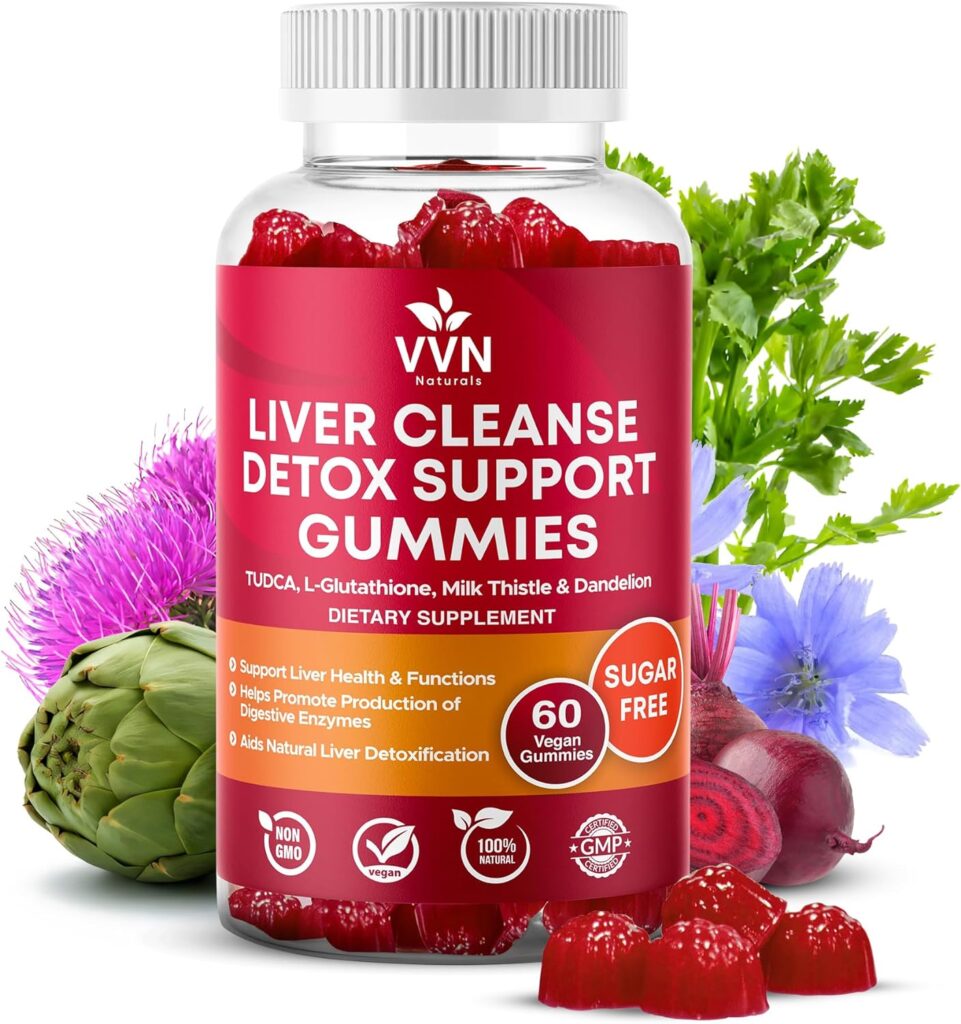The liver plays a crucial role in detoxifying the body by filtering out toxins, processing waste, and breaking down fats, proteins, and carbohydrates.
However, factors such as poor diet, alcohol consumption, environmental toxins, and stress can overload the liver, making it less efficient.
A liver detox is a process aimed at supporting liver function and helping the body clear out toxins.
It involves a combination of dietary changes, lifestyle adjustments, and supplements that promote liver health.
In this blog, we’ll explore five effective ways to support a liver detox and promote overall well-being.
Let’s dive in!
What Is a Liver Detox?
A liver detox refers to a set of practices aimed at cleansing the liver, improving its function, and helping it remove built-up toxins from the body.
It may involve reducing toxin exposure, increasing the intake of liver-supporting foods, and using supplements designed to assist in detoxification.
A proper detoxification process helps promote healthy liver function, boosts energy levels, improves digestion, and supports the body’s natural ability to cleanse itself.
5 Ways To Detox The Liver
1. Take a Liver Detox Supplement
One of the most effective ways to support a liver detox is by using a liver detox supplement.
These supplements often contain a blend of natural ingredients such as milk thistle, dandelion root, turmeric, and artichoke extract, which are known for their liver-supporting properties.
Milk thistle, in particular, is rich in silymarin, a powerful antioxidant that helps protect liver cells, reduce inflammation, and support detoxification.
A high-quality liver detox supplement can enhance the liver’s natural detox processes and help cleanse the body of harmful substances.
Out of all the liver support supplements I’ve tried, my all-time favorite is VVN’s Liver Detox Gummies.
These liver detox gummies are perfect for supporting a liver detox due to their powerful 26-in-1 formula, which includes key ingredients like Milk Thistle, L-Glutathione, and TUDCA.
These gummies help support fatty liver, promote liver function, and aid in the three phases of liver detoxification.
With 3000mg of liver-supporting ingredients in each serving, they provide a comprehensive solution to detoxify and support liver health.
All you need to do is take two gummies per day, and you’re good to go!
2. Drink Plenty of Water
Staying hydrated is key to supporting your liver during a detox.
Water helps flush out toxins and waste products, which allows the liver to function more effectively.
Drinking enough water throughout the day aids in the detoxification process and ensures that your kidneys, which work alongside the liver to remove toxins, can operate efficiently.
Aim to drink at least 8 glasses of water a day to keep your body hydrated and promote the removal of toxins.
3. Follow a Liver-Friendly Diet
Eating a diet rich in liver-supporting foods can help cleanse the liver and promote its health.
Foods such as leafy greens, cruciferous vegetables (broccoli, cauliflower, kale), and beets are excellent for detoxing the liver, as they help activate the liver’s natural detoxification enzymes.
Foods high in antioxidants, like berries, garlic, and citrus fruits, help protect the liver from oxidative stress and support its detox functions.
In addition, incorporating healthy fats such as those found in avocados, nuts, and olive oil can help your liver process and break down fat more efficiently.
4. Get Regular Exercise
Exercise plays a vital role in supporting liver detoxification.
Regular physical activity helps improve circulation, which ensures that oxygen and nutrients are efficiently delivered to your liver and other organs involved in detoxification.
Exercise also helps increase sweat production, which aids in the removal of toxins through the skin.
Additionally, exercising regularly can help maintain a healthy weight, which reduces the strain on your liver and supports its ability to detoxify.
Aim for at least 30 minutes of moderate exercise most days of the week to support your liver’s health and detoxification process.
5. Avoid Toxins and Alcohol
To effectively detox your liver, it’s important to avoid substances that can put additional strain on the liver.
Alcohol, processed foods, and exposure to environmental toxins (such as cigarette smoke and household chemicals) can all negatively impact liver health.
Cutting back on alcohol and avoiding harmful chemicals can help your liver focus on detoxifying and healing.
It’s also important to avoid over-the-counter medications or prescription drugs that can cause liver damage when taken in excess.
By reducing toxin exposure, you give your liver the opportunity to cleanse itself and restore optimal function.
Start Your Liver Detox Journey
A liver detox is an excellent way to support liver function, promote overall health, and help your body remove toxins.
By taking a liver detox supplement, staying hydrated, eating a liver-friendly diet, exercising regularly, and avoiding toxins, you can help your liver perform its crucial detoxification role more efficiently.
Supporting your liver through these methods can help boost your energy, improve digestion, and enhance your overall well-being.
If you’re considering a liver detox, it’s always a good idea to consult with a healthcare provider, especially if you have any underlying health conditions.
With the right approach, you can support your liver’s health and feel your best.
Thank you for reading!
Affiliate Disclosure
Some of the links on this site are affiliate links. This means that if you click on the link and purchase the item, we may receive an affiliate commission at no extra cost to you. I only recommend products or services that I believe will add value to my readers, however some (not all) do pay us to be on this blog. Your support and theirs helps keep this blog running, and I genuinely appreciate it.
Medical Disclaimer
The information provided on this website is for educational purposes only and is not intended as medical advice. This blog or the writer is not a licensed healthcare professional, and the content should not be used as a substitute for professional medical diagnosis, treatment, or advice. Always consult with your physician or other qualified healthcare provider before starting any new treatment or making any changes to your healthcare routine.
